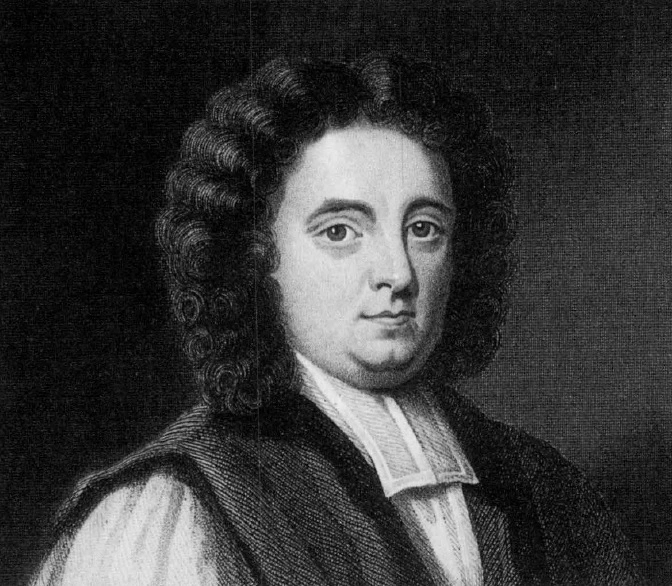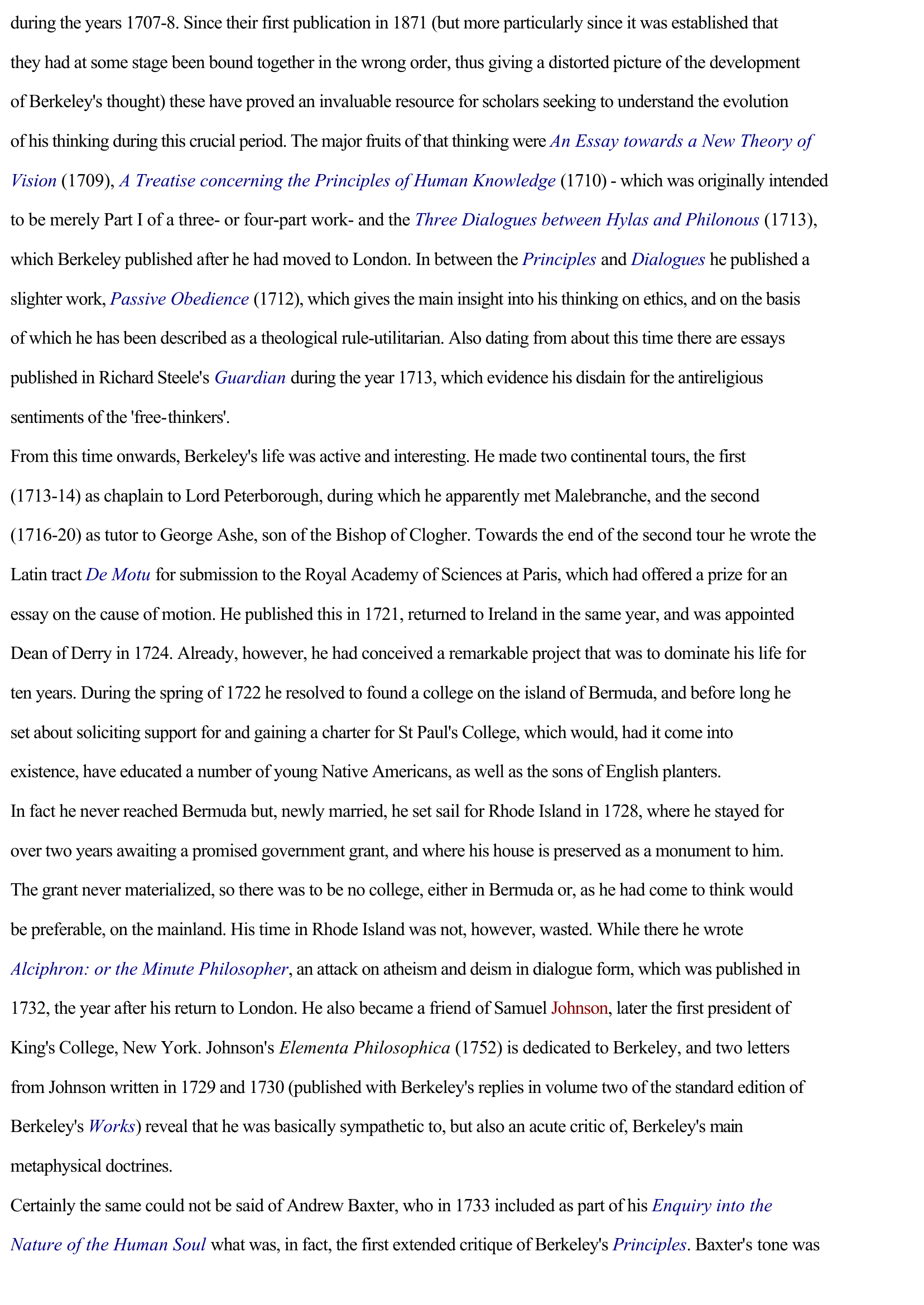Berkeley, George
Publié le 22/02/2012

Extrait du document


«
during the years 1707-8.
Since their first publication in 1871 (but more particularly since it was established that
they had at some stage been bound together in the wrong order, thus giving a distorted picture of the development
of Berkeley's thought) these have proved an invaluable resource for scholars seeking to understand the evolution
of his thinking during this crucial period.
The major fruits of that thinking were An Essay towards a New Theory of
Vision (1709), A Treatise concerning the Principles of Human Knowledge (1710) - which was originally intended
to be merely Part I of a three- or four-part work- and the Three Dialogues between Hylas and Philonous (1713),
which Berkeley published after he had moved to London.
In between the Principles and Dialogues he published a
slighter work, Passive Obedience (1712), which gives the main insight into his thinking on ethics, and on the basis
of which he has been described as a theological rule-utilitarian.
Also dating from about this time there are essays
published in Richard Steele 's Guardian during the year 1713, which evidence his disdain for the antireligious
sentiments of the 'free -thinkers' .
From this time onwards, Berkeley's life was active and interesting.
He made two continental tours, the first
(1713-14) as chaplain to Lord Peterborough, during which he apparently met Malebranche, and the second
(1716-20) as tutor to George Ashe, son of the Bishop of Clogher.
Towards the end of the second tour he wrote the
Latin tract De Motu for submission to the Royal Academy of Sciences at Paris, which had offered a prize for an
essay on the cause of motion.
He published this in 1721, returned to Ireland in the same year, and was appointed
Dean of Derry in 1724.
Already, however, he had conceived a remarkable project that was to dominate his life for
ten years.
During the spring of 1722 he resolved to found a college on the island of Bermuda, and before long he
set about soliciting support for and gaining a charter for St Paul's College, which would, had it come into
existence, have educated a number of young Native Americans, as well as the sons of English planters.
In fact he never reached Bermuda but, newly married, he set sail for Rhode Island in 1728, where he stayed for
over two years awaiting a promised government grant, and where his house is preserved as a monument to him.
The grant never materialized, so there was to be no college, either in Bermuda or, as he had come to think would
be preferable, on the mainland.
His time in Rhode Island was not, however, wasted.
While there he wrote
Alciphron: or the Minute Philosopher , an attack on atheism and deism in dialogue form, which was published in
1732, the year after his return to London.
He also became a friend of Samuel Johnson , later the first president of
King's College, New York.
Johnson 's Elementa Philosophica (1752) is dedicated to Berkeley, and two letters
from Johnson written in 1729 and 1730 (published with Berkeley's replies in volume two of the standard edition of
Berkeley's Works ) reveal that he was basically sympathetic to, but also an acute critic of, Berkeley's main
metaphysical doctrines.
Certainly the same could not be said of Andrew Baxter, who in 1733 included as part of his Enquiry into the
Nature of the Human Soul what was, in fact, the first extended critique of Berkeley's Principles .
Baxter 's tone was.
»
↓↓↓ APERÇU DU DOCUMENT ↓↓↓
Liens utiles
- TRAITÉ DES PRINCIPES DE LA CONNAISSANCE HUMAINE, George Berkeley
- ESSAI POUR UNE NOUVELLE THÉORIE DE LA VISION, George Berkeley
- ALCIPHRON OU LE PENSE-MENU, George Berkeley
- TROIS DIALOGUES ENTRE HYLAS ET PHILONOUS, George Berkeley (résumé & analyse)
- PRINCIPES DE LA CONNAISSANCE HUMAINE (Sur les) George Berkeley (résumé et analyse de l’oeuvre)

































